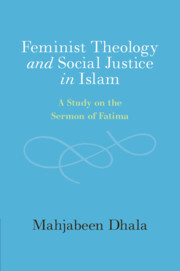Refine search
Actions for selected content:
2 results

Feminist Theology and Social Justice in Islam
- A Study on the Sermon of Fatima
-
- Published online:
- 27 January 2024
- Print publication:
- 01 February 2024
Chapter Four - The Making of the 1958 Penal Code
- from Part II - Constituting Difference
-
- Book:
- Entangled Domains
- Published online:
- 18 May 2023
- Print publication:
- 01 June 2023, pp 144-188
-
- Chapter
- Export citation
